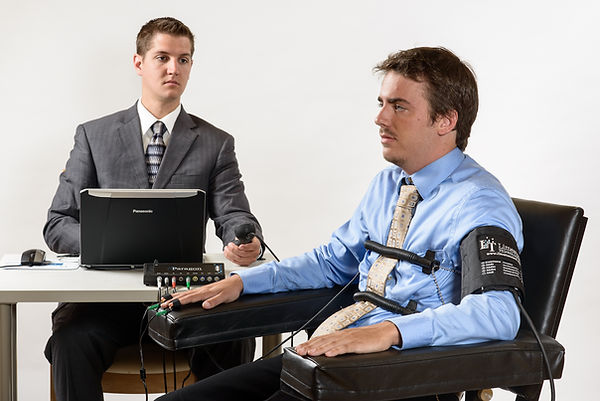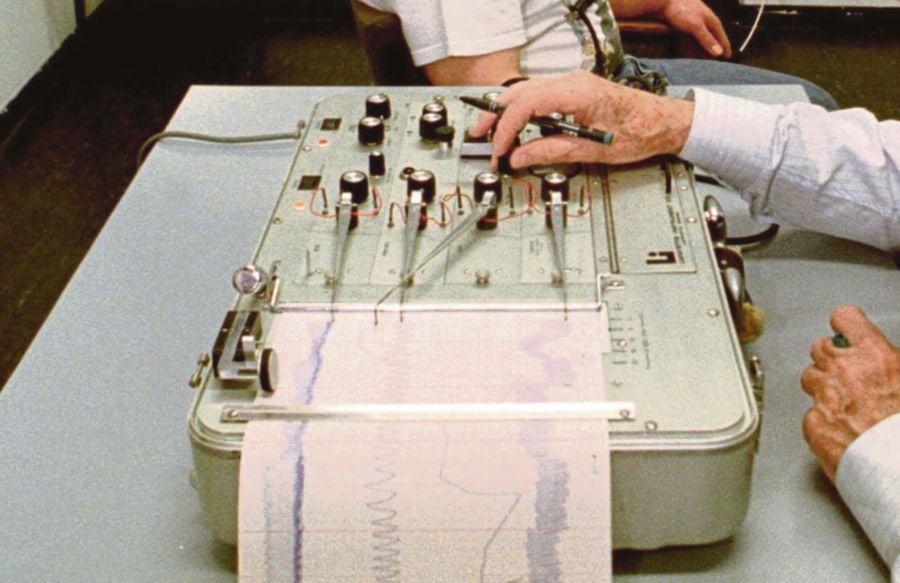The Truth About Polygraph Examinations
Preparing For The Test
When facing a polygraph examination, it’s important to understand what you’re walking into. The testing room is intentionally designed to make you feel isolated and vulnerable. Before the examination begins, the examiner will try to assess your personality and attitudes - this information will then be used against you during questioning. psychological interrogation methods police interrogations Keep in mind that a polygraph is less of a test and more of an interrogation. The examiner is using the machine as a prop to elicit information or a confession through psychological techniques, regardless of how your physical responses actually register. Their goal is to get you to reveal something through relentless questioning.

The Examination Process
During the exam, you’ll be asked both “control” and “relevant” questions. The examiner will claim they’re comparing your answers to determine if you’re lying. In reality, they’ve already decided how to interpret the results before you even sit down. polygraph examination procedure control questions relevant questions deception detection Once finished, the examiner will leave the room to “study” the results - often making you wait alone for an extended period. When they return, they’ll accuse you of deceiving them no matter what. The interrogation will continue for another hour or more with relentless accusations and demands for the “truth.” Their goal is to break you down through anxiety and doubt.
Post-Examination Interrogation
After completing the test, the psychological interrogation truly begins. The examiner will confront you aggressively no matter what the actual results say. polygraph post-test interrogation interrogation techniques police interrogation psychological interrogation They’ll insist you’re hiding something and demand a confession, seeking to induce stress, worry, and tears. Only then will they claim to need management approval before deciding next steps - like requiring a re-test. All the while, their true aim is bending you to their will through fear and pressure rather than objectively assessing the examination responses.
Beating The System Is Impossible
While it may be tempting to try and “beat” the polygraph through countermeasures, this approach will only make you appear deceptive and suspicious. The examiner is an expert at inducing physical reactions through psychological tactics. polygraph countermeasures beating a polygraph test polygraph reliability issues polygraph admissibility Attempting to fool the machine by tensing muscles or other tricks exposes you as intentionally deceptive and trying to hide the truth. This will raise red flags rather than clearing your name. Your best option is refusing to submit to a polygraph at all if possible to avoid the entire problematic process. The polygraph is an unreliable interrogation tool, not a true lie detector test.
The Polygraph As A Myth
At its core, the polygraph relies on the myth that physiological responses can perfectly detect lies. While stress responses may correlate with deception in some cases, reactions are also influenced by fear, anxiety, impatience and other emotions elicited through the interrogative setting itself. polygraph myth controversy polygraph admissibility issues polygraph reliability debate polygraph accuracy Research has repeatedly shown polygraph results are no better than chance at accurately distinguishing truth from lies. The entire field depends more on the psychological power of the examiner than the actual machine readings. By refusing to participate, one removes their power rather than engage in a system built on questionable science. Objective investigation requires evidence, not interrogation through intimidation and doubt.
Conclusion - Look Beyond The Polygraph
In the end, the polygraph relies more on perception than fact. Its purpose is psychological manipulation disguised as science-backed lie detection. Rather than risk the problematic process, request alternative investigation methods if accused of wrongdoing. And consider polygraph results as opinions rather than proof when evaluating others. Objective truth is best discovered through evidence, not fear or coercion.
polygraph alternatives conclusions better investigation techniques beyond polygraphs
While the polygraph myth persists due to its perception as a solution, its scientific validity is highly questionable. Progress requires looking past misleading perceptions to the actual facts and moving investigations forward through proper questioning, background checks, corroborating information and measurable evidence rather than intimidating interrogations. The truth is more than what can be gleaned from reactions to carefully engineered questions and scenarios.
